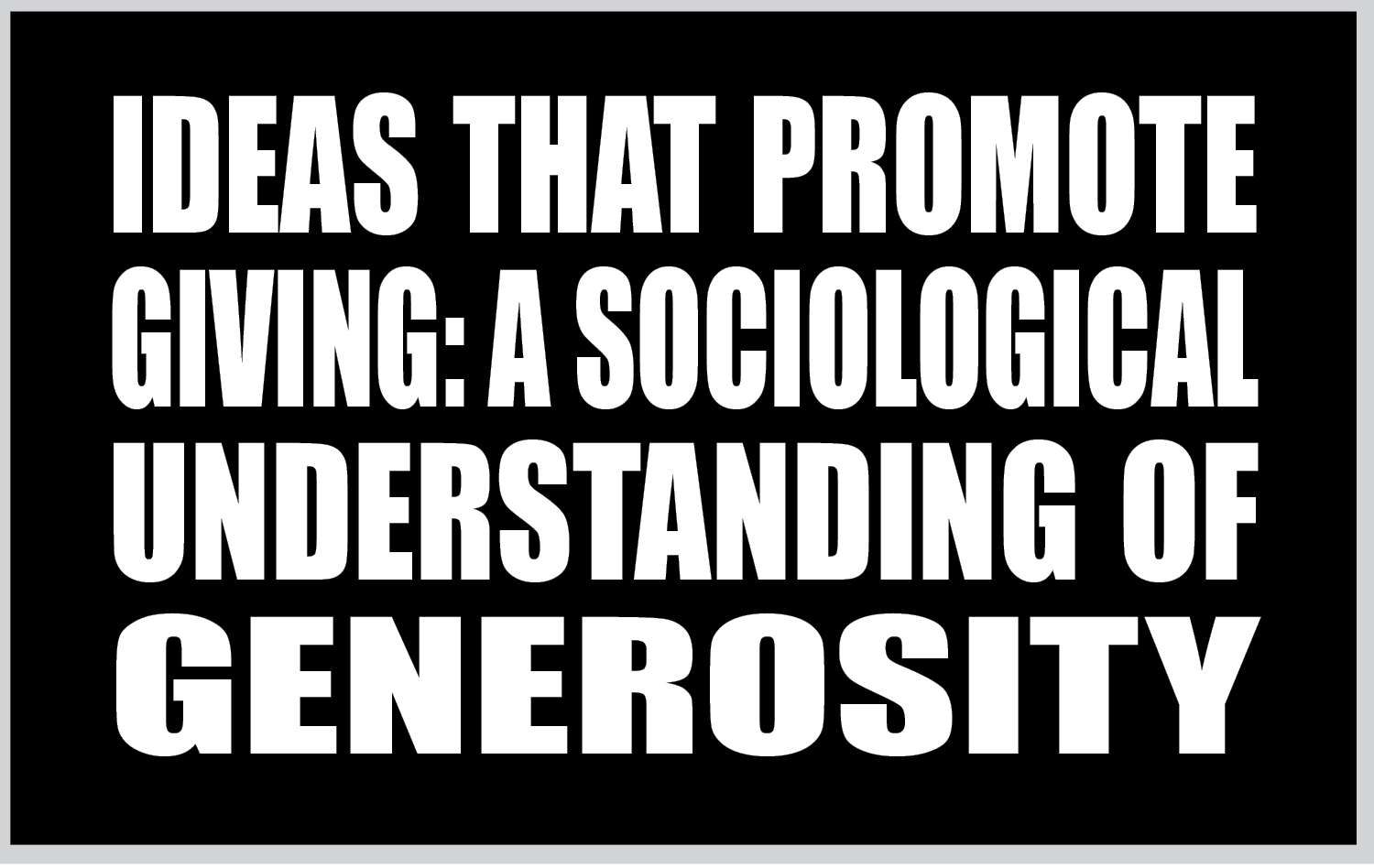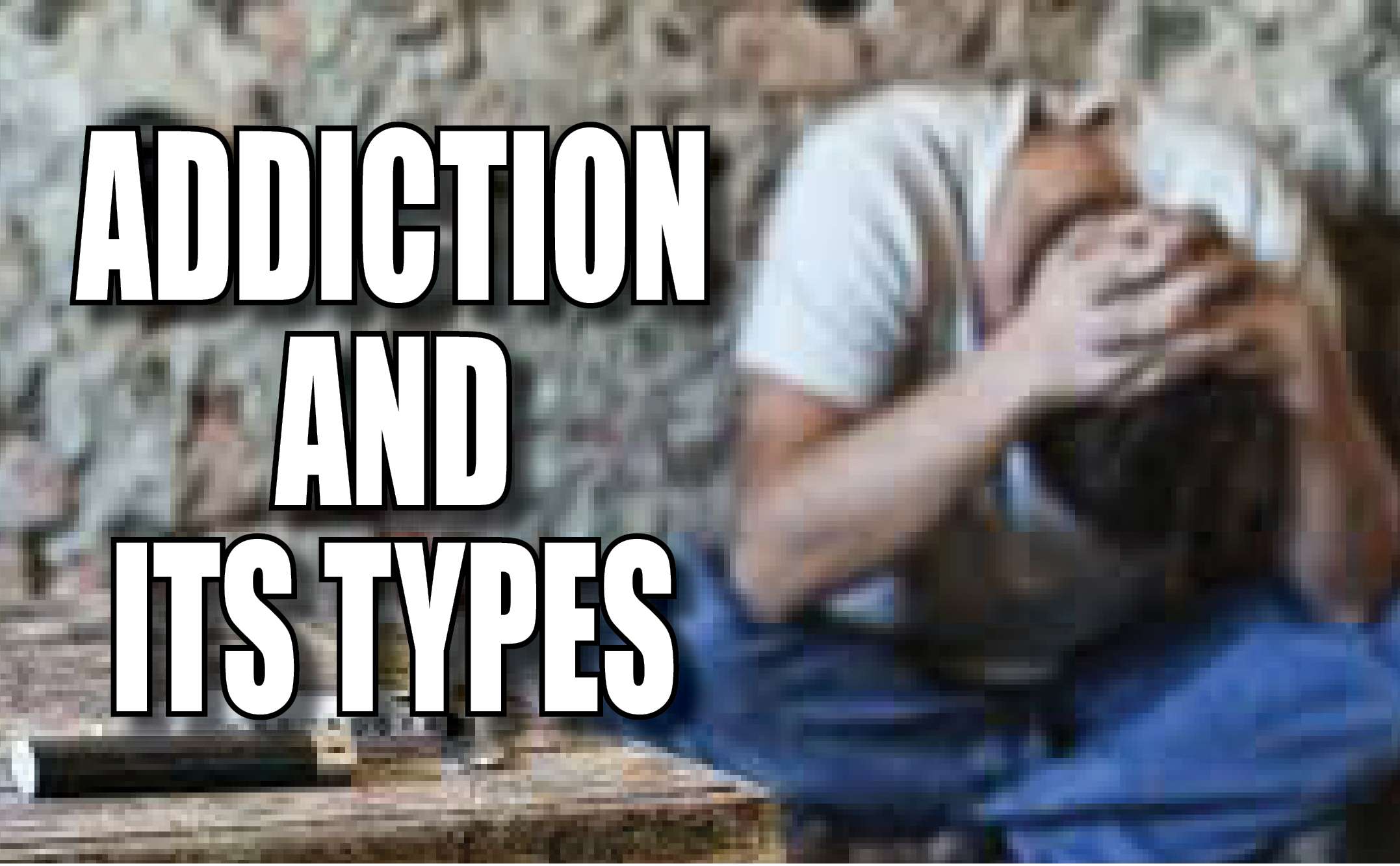
Ideas that Promote Giving: A Sociological Understanding of Generosity
Mr. Vivyn Mathew
The concept of aiding others in need is seen since the beginning of human existence. Historically, the ability of its members to stand with others in time of necessity determined whethertheir societies and civilizations flourished or diminished. This aspect of aiding others in want is seen as a reason for growth and stability of all major civilizations in the world. All major civilizations had a well defined concept and methodology as a part of social order for helping the poor and needy. It can be seen that the virtue of helping the needy by giving them resources was highly extolled in all cultures. As the communities advanced into categorizing and classifying virtues, the act of giving to needy were associated with the disciplines of social norm, morality, philanthropy and religiosity.This article looks into the social themes of few communities that are developed through their belief system and discusses certain social determinants that propel societies and cultures to be helpful and generous.
The term 'Generosity' derives from a latin root term “generosus” meaning generous. Thus generosity can be conceptualized to be a quality of being generous. Generosity when defined gives a diverse meaning of being liberal, magnanimous, charitable, broad minded, munificent, willing to share and give, not selfish, characterized by a noble, forgiving, and kind spirit unique in the habit of giving. Generosity implies giving to others at a level that exceeds minimum needs or showing a readiness to give more of something, especially money, more than what is strictly necessary or expected.Generosity also entails “the disposition and practice of freely giving of one's financial resources, time, and talents, [including], for example, charitable financial giving, volunteering, and the dedication of one's gifts for the welfare of others or the common good.” The term 'generosity' is used widely as in the literature on social behavior. In other words, it is something that is not be manifested in random single time behaviour, but believed as expressing a generous behavior that is consistently throughout life.
Generosity is also not a mere prosocial behavior-but a behavior stemming from a psychological process conditioned through culture and socialization to express compassion and concern towards the welfare of others in the community they live. People’s lives and behavior are greatly shaped by the varying interactions in groups which they find themselves. Being nurtured in social groups matters for generous behavior in people. Groups are the social context for our role identities as they are the crucial basis of our socialization. They offer the space for the progress of individual and social and one learns behaviors and acquire values, often from socially interaction from others. The social groups one lives help individuals to develop different role identities based on various group affiliations. These group affiliations facilitate various group interactions that help individuals to conceive and develop social identities as much as they have their personal identities. The development of a so called “sociocentric” identity over an “egocentric” identity through the group process makes a person have a wider world view, making, them more liberal and generous towards others.
This development of a “sociocentric” view through group processes are well seen in the Indian and judeochristian world view. Both these systems of world view are resultant of well developed ideologies that promotes comprehensive growth and development all elements that are a part of its social sphere.These ideologies evolved through the understanding sustaining virtues that promoted growth and wellbeing. It can be seen that these ideologies became the identity of these cultures and provided distinct guidelines to social interactions guiding prosocial behaviors that aided the development of a “sociocentric” development of Individuals that are mindful of the development of others.
The traditional Indian view point of generous giving comes from the idea of a giving “Dhaana”. According to historical records, “Dhaana” is an ancient practice in Indian traditions, tracing back to Vedic traditions. The act of giving “Dhaana”is considered as the highest virtue in the Indian philosophy.The word “Dhaana” meant the virtue of generosity, in Indian philosophies. These ideas were equivocally shared among the religious systems of Hinduism, Buddhism, Jainism and Sikhism as a practice of cultivating generosity. It can take the form of doing helpful deeds or giving of alms to an individual in distress or need. The idea of “Dhaana” influences the nature of social life, as it is believed as a form of good “karma” that affect one's future situation and environment. Good generous deeds leads to good future life because of the reciprocity principle, that states that reciprocity may be innate in human nature with social consequence, which means “Dhaana” is a virtue in itself, as doing good elevates the nature of one who gives. The practice of “Dhaana”, is regarded as a act of “dharma” to be done with “shraddha” (faith), as it involves a idealistic-normative approach that has spiritual and philosophical context.
The Judeo Christian world view on being generous influenced the socialization and acculturation process of the western world, which intern influenced the entire world during modern and post modern era. The concept of being generous in the judeo Christian ideology can be traced back to the teaching from the Sacred Scripture “The Bible”. The notion of being liberal is vividly stated both in the Hebrew texts of Old Testament and also the Greek texts in the New Testament. The Holy Bible has had a deep impact in the shaping of Socio Cultural ideologies, community living and in framing the ethical- moral world view of the whole world. Norms, customs, socialization patterns, patterns of civil and legal societal interactions have been derived from the Biblical view point. The Hebrew word equivalent to English word “liberal” has a deeper and nobler meaning than conveyed by the English word. In Prov 11:25, the liberal soul (nephesh berakhah) means a ‘soul that carries a blessing’. The King James Version has "liberal," and in verse 8 "noble" takes the place of "liberal" (nadhibh). The principal Greek words are haplotes literally, "simplicity, and “sincerity,” and charis, “grace,” favor." In 1 Cor 16:3, "bounty" substitutes "liberality." It is well to bear in mind that a Biblical liberality can spring only out of a noble soul, and is Godlike in its origin and spirit. These Biblical concepts of liberality and generosity have impacted greater sociological and philanthropical processes across the world resulting great philanthropical and liberal initiatives that are existent to this day.
The above mentioned conceptual and ideological understanding makes the societies value the significance of being generous. As macro cultures normalize and promote generosity in different forms it tends to make people to be more generous. People that are raised by parents who practice liberal giving turn out to be more generous as they become adults, sometimes without even realizing it. The members of social institutions that teach and practice the virtues of generosity, such as in religious congregations and community associations, turn out to be generous in the process. The way in which such sociological factors shape different people to be more generous points to certain social determinants that enhance philanthropy. They are:
Creating awareness of the need: Creating awareness of need is a sociological process and an important requirement for philanthropy. Making people aware of a need for support is very vital. The mediums and channels of social interaction can be activated to create awareness of the need.
Appealing for the type of Support: Different types of needs demand varying nature generous efforts, either materially or by participation. A sustained appealing process for support to the community is necessary to enhance the nature of social interaction and participation. Active appealing increases the likelihood of generous participation. Specific appeals have greater impact and better response.
Altruism: Sociologists understand altruism as a ‘principle of unselfish regard for the needs and interests of others‘. Some individuals make for their societies in particular contexts, whether it be due to a strong sense of social cohesion or tradition.
Reputation: Being generous can also be for a reason of gaining reputation, which is a sociological concept. Reputation refers to the existence of a socially recognized persona. Reputation work in various spheres of influence: personal, mass-mediated, organizational, and historical. Reputations can bring immediate results by influencing the actions of those in the community by having a potential to shape peoples’ lives.
Other Psychological Gains: People also show generosity for psychological gains apart from altruism and gaining reputation .Giving is in many cases an almost automatic emotional response, producing a positive mood, lessening feelings of guilt, reducing aversive excitement, satisfying a desire to show gratitude, or to be a morally just person. The phenomenon of “empathic Joy” is a resultant of helping others by developing a positive psychological frame of mind.
Mood states of people are related to giving. Inducing a positive mood facilitates giving. It is seen that donors tend to donate due to a “feel good” factor. At times people in a bad mood also respond well to donations in order to avoid negative outcomes and punishments that come with not giving.
Values: Highlighting the value of the cause that needs generous support is very important in philanthropy. Specific social values promote donations to particular charities. Generosity helps one to reach to one’s view of the “ideal” world. Through giving, donors may wish to reduce poverty, empower women, safeguard human rights, protect animals, wildlife, or the ozone layer. Supporting a cause that changes the world in a desired direction is a key motive for giving.
Impact of Generosity: Generous giving is enhanced as the donors perceive that their contribution makes a difference to the cause they are supporting. Studies reveal that when people perceive that their contribution does not make a difference, they are less likely to give. Having the power to impact desired changes propels one to generously invest.

